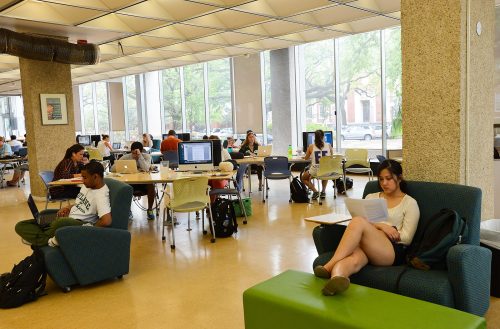The library is warm and quiet — a shelter for Tulane University students to congregate in various groups, some preparing each other with flashcards, others bracing themselves for the worst. As the clock strikes midnight and students in dire conditions brace themselves for a dreaded all-nighter, something peculiar happens. Tulane closes every floor but one, and library staff ushers students to the first floor, where they remain for the rest of the night.
Despite being open 24 hours, the Howard-Tilton Memorial Library shuts its doors and leaves students on the cold first floor the moment after midnight. While the library may not shut down completely, the banishment of our student body to the first floor, even on finals week, reveals an emphasis on saving money at the expense of learning.
Tulane is an expensive school. With tuition and fees at roughly $88,000 per year, students pay hefty amounts for what is meant to be a premier education. College students pulling all-nighters, drinking Red Bulls and studying for hours straight during exam week and for most courses is a common trope — and one that makes sense. College-level classes are demanding and require extensive time and effort, which requires students to study constantly.
It is stunning that Tulane dedicates no funds to ensure that there are plenty of places where students can safely study overnight, especially during finals week. Every floor of the library is closed during night hours, excluding the first floor with bright fluorescent lights and no noise limit. Tulane is sending a message to students that they have closed the library for learning.
The reasons for most of the library closing are lighting and security expenses. While keeping every floor of the library open would increase costs for Tulane, it would also send an impactful message to students: Tulane prioritizes academic success and offers a safe and convenient place to study.
Addressing this issue begins by asking why a university with access to so many funds does not spend as much as possible on its academic infrastructure. And further, what cause could be more important than ensuring a safe, accessible environment to study for final exams?




Leave a Comment